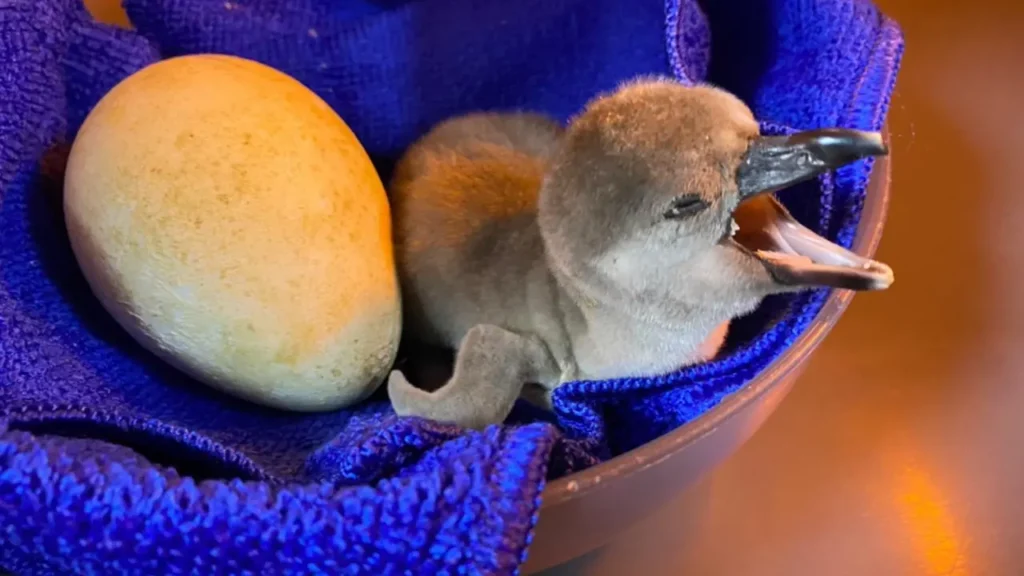A friendly outing to see the penguins at Mumbai’s Byculla Zoo has suddenly turned into a hot topic of debate across the city. The reason? The names of the penguins. What started as a fun attraction has now become a conversation about culture, language, and identity — all because the penguins don’t have Marathi names.
When the zoo recently put up name boards for the penguins, visitors were surprised to see names like Daisy, Donald, Flipper, Bubble, and Popeye. While the names are cute and easy to remember, some people started asking a simple but powerful question: why weren’t the names in Marathi?
The question quickly gained attention on social media. People began to ask whether it was right for a public zoo in the heart of Mumbai — a city where Marathi is the state’s official language — to name animals without including the local culture. “Why are all the names in English? Are Marathi names not good enough?” wrote one user on X (formerly Twitter). Another asked, “Isn’t this our city, our language? Why ignore Marathi like this?”
Soon, local political parties picked up the issue. Some leaders said that while there’s nothing wrong with using English, public institutions like zoos should also celebrate local identity. They said naming the penguins in Marathi would make the experience more inclusive for all Mumbaikars, especially school children who speak the language at home. A few even argued that using regional names could help children feel more connected to the animals and the place.
On the other hand, some people pushed back. They said that the names were meant to be fun and light-hearted, and not everything has to become a political or cultural issue. One visitor at the zoo said, “Kids like names like Flipper and Daisy. They remember them easily. This isn’t about language — it’s about fun.” Another pointed out that penguins are not native to India and are more commonly associated with English-speaking countries, so English names felt more natural.
This back-and-forth shows just how much emotion and pride people feel about language. In Mumbai, where many languages are spoken every day — Marathi, Hindi, English, Gujarati, and more — language is not just a way to talk. It’s part of who people are. So when one language is left out, even in something as simple as naming animals, it can feel personal.
Some locals offered a middle path. They suggested that each penguin could have two names — one in English, one in Marathi — just like many people in Mumbai do. For example, Bubble could also be known as “Phuggi” in Marathi. This way, kids and visitors could enjoy the fun names while also learning local words. It would be a small but meaningful step toward including everyone.
The zoo management responded to the discussion by saying they had not expected such strong reactions. According to zoo officials, the penguins had been named long ago when they first arrived from South Korea in 2016. The names were chosen by the caretakers and staff, many of whom were trained to work with international standards in mind. The aim was to make the names simple, catchy, and easy for the public to remember.
Still, the zoo said it is open to suggestions and wants to make the experience enjoyable for all. A spokesperson added that the main focus is the health and care of the penguins, but they do value the opinions of visitors. “If people feel strongly about this, we are happy to consider adding Marathi names or including local touchpoints in the zoo,” the official said.
This is not the first time such a debate has happened in Mumbai. In the past, there have been similar discussions about English signboards on shops, metro station names, and even menu cards in restaurants. Each time, the heart of the matter is the same — the desire for Marathi to be respected and seen in public spaces, not pushed into the background.
What makes this story stand out is how something as innocent as naming penguins can reflect deeper feelings about belonging and identity. It shows that even in a modern, fast-moving city like Mumbai, people still care deeply about their roots.
Parents visiting the zoo with their children also shared their thoughts. One mother said, “My daughter loves the penguins, and she remembers all their names. But I also teach her Marathi at home, and it would be lovely if she could learn those names too. It’s not about choosing one language over another. It’s about balance.”
For now, the penguins continue to swim, waddle, and play, unaware of the discussions happening around their names. But the buzz they’ve created goes beyond the glass walls of their enclosure. They’ve sparked a healthy debate about language, representation, and how public places can be made more inclusive.
Whether the zoo eventually decides to rename the penguins or simply adds Marathi versions alongside the current names, the conversation has already done something important — it has reminded people of the value of their language and culture, and the need to see it reflected in everyday life.
In the end, it may not matter whether a penguin is called Flipper or Phuggi. What matters more is that everyone who visits the zoo — young or old, English-speaking or Marathi-speaking — feels welcomed, seen, and heard.

